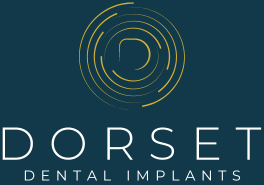Caring for your denture can be challenging
Taking proper care of your denture is important in maintaining good oral health and ensuring the longevity of your restoration and the implants supporting it.
Just like your natural teeth, your denture requires proper daily cleaning to maintain optimal health.
Hybrid dentures can be brushed with non-abrasive denture toothpaste and should be brushed twice a day. Using short, back-and-forth strokes, gently brush the outer, inner and chewing surfaces of the denture teeth, as well as the pink acrylic portions of the denture that are able to be reached.
Caring for your denture can be challenging because of the need to not only brush and floss around it but also care for tissue underneath it to eliminate plaque buildup that can inflame the gums and damage the implants.
The harder-to-reach area between the denture and the natural gums also needs regular cleaning to eliminate food particles and plaque harbouring harmful bacteria.
Hybrid dentures are designed to leave a small space between the denture and gum tissue that allows for cleaning without removing the denture.
There are a few options that can be used to clean this space. Specially designed ‘superfloss’ can be threaded through the space and worked back and forth along the gum line to remove buildup.
Additionally, an interdental brush, electric water or air flosser can be used. Cleaning this area is vital to maintaining healthy gum tissue and keeping your implants free of infection-causing bacteria.
Your doctor will work with you to schedule regular visits so that your denture can be professionally removed and cleaned. Also, the screws holding the denture in place will need to be periodically replaced. These visits are a critical component in keeping your denture in optimal condition and your implants and gum tissues healthy.
Proper regular cleaning of your denture and surrounding gum tissues will keep your denture in optimal condition, and help prevent bacterial buildup that can potentially lead to implant-related gum disease, and ultimately even loss of your dental implants.
What next?
For more information please click here to email the practice to make an appointment or call 01202 973300.
